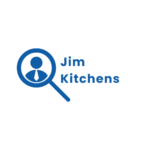Navigating the complex world of career advancement can feel overwhelming. I’ve learned that having a solid career development plan is crucial for turning aspirations into reality. It’s not just about climbing the corporate ladder; it’s about aligning your goals with your passions and skills.
A well-crafted career development plan serves as a roadmap, guiding you through professional growth and new opportunities. Whether you’re just starting out or looking to pivot in your career, understanding how to create and implement an effective plan can make all the difference. Let’s dive into the essential elements of career development plans and how they can empower you to take charge of your future.
Career Development Plans
- Career Development Plans Are Essential: A well-structured career development plan serves as a roadmap for professional growth, aligning personal goals with passions and skills.
- Key Components to Include: Effective plans should encompass self-assessment, goal setting, skill development, networking, and progress monitoring.
- Importance of Goal Setting: Establishing SMART (Specific, Measurable, Achievable, Relevant, Time-bound) goals provides clarity and motivation, facilitating a focused career trajectory.
- Continuous Learning is Vital: Engaging in ongoing education through workshops, courses, and networking enhances skills and adaptability in a dynamic job market.
- Implementation and Adaptability: Regularly reviewing and adjusting your career development plan ensures it remains relevant to changing aspirations and market demands.
- Celebrate Milestones: Acknowledging achievements boosts motivation and reinforces a positive outlook toward future career goals.
What Are Career Development Plans?
Career development plans serve as strategic tools for individuals seeking to advance their careers. These plans outline specific objectives, target skills, and actionable steps to achieve professional goals. A well-structured plan includes short-term and long-term goals tailored to one’s aspirations.
Key components of career development plans encompass:
- Self-Assessment: Understanding strengths, weaknesses, interests, and values helps in setting realistic career goals.
- Goal Setting: Defining clear, achievable objectives provides direction and motivation. Goals must be measurable and time-bound.
- Skill Development: Identifying necessary skills aids in enhancing competencies relevant to one’s career path.
- Networking: Building professional relationships offers opportunities for learning and collaboration, enriching the career growth process.
- Progress Monitoring: Regularly reviewing and adjusting the plan ensures alignment with evolving goals and circumstances.
Creating a personalized career development plan empowers individuals to navigate their professional journey effectively. It cultivates awareness of available opportunities and fosters a proactive approach to career advancement.
Importance of Career Development Plans
Career development plans play a crucial role in professional advancement and satisfaction. These plans not only guide individuals toward their goals but also contribute positively to organizational success.
Enhancing Employee Engagement
Enhancing employee engagement occurs when individuals feel empowered and supported in their career aspirations. Engaged employees exhibit higher productivity levels and lower turnover rates. Career development plans provide a structured pathway for growth, fostering a sense of ownership over one’s career. Engaged employees are more likely to share ideas, collaborate effectively, and contribute to a positive workplace culture. Investing in development opportunities signals to employees that the organization values their growth.
Aligning Skills with Company Goals
Aligning skills with company goals ensures both personal and organizational success. By creating a development plan, individuals identify skills crucial for their current and future roles. This alignment maximizes workforce potential, driving innovation and efficiency. As employees pursue relevant training and experiences, they enhance their ability to meet company objectives. A well-defined career development plan promotes a culture of continuous improvement, benefiting both the individual and the organization’s mission.
Key Components of Effective Career Development Plans
Effective career development plans encompass essential components that drive professional growth. Focusing on goal setting, skills assessment, and continuous learning opportunities creates a robust framework for success.
Goal Setting
Goal setting entails defining specific, measurable, achievable, relevant, and time-bound (SMART) objectives. By identifying both short-term and long-term goals, individuals clarify their career aspirations. Structured goals enable tracking of progress and can be adjusted based on evolving interests and changing market dynamics. Setting clear objectives fosters motivation and accountability, ensuring that each step taken aligns with one’s career vision.
Skills Assessment
Skills assessment involves evaluating existing competencies and identifying skill gaps. Conducting a thorough self-assessment allows individuals to understand strengths and weaknesses. Utilizing tools like performance reviews, feedback from peers, and reflective exercises aids in recognizing areas for improvement. This proactive approach helps prioritize which skills to develop, ensuring alignment with career goals and industry demands.
Continuous Learning Opportunities
Continuous learning opportunities are crucial for professional evolution. Engaging in workshops, online courses, and certification programs enhances knowledge and showcases commitment to growth. Networking events, mentorships, and industry conferences provide additional avenues to acquire insights and foster relevant connections. Embracing lifelong learning equips individuals with new skills, ensuring adaptability in a rapidly changing job market.
Implementing Career Development Plans
Implementing career development plans involves a systematic approach that transforms aspirations into actionable steps. This process includes a series of distinct actions designed to enhance personal and professional growth.
Steps for Development
- Conduct Self-Assessment: Evaluate personal strengths and weaknesses to gain clarity on career aspirations. Utilize tools like personality tests or skills inventories to identify areas for improvement.
- Set SMART Goals: Establish specific, measurable, achievable, relevant, and time-bound objectives. For example, aim to acquire a new certification within six months, enhancing both skills and marketability.
- Develop Skills: Identify necessary skills for career advancement. Engage in training programs, workshops, or online courses that target specific competencies aligned with set goals.
- Expand Professional Network: Build and nurture relationships with industry professionals. Attend networking events or engage in online communities to share knowledge and explore opportunities.
- Seek Mentorship: Find a mentor who aligns with career objectives. Mentors provide guidance, share experiences, and offer valuable insights conducive to professional development.
- Document Action Steps: Create a detailed plan that outlines the specific actions required to achieve each goal. Using a timeline helps maintain focus and accountability.
- Regular Check-Ins: Schedule periodic reviews of the career development plan. Regular assessments of progress help identify achievements, adjustments, and areas needing additional focus.
- Use Metrics: Track measurable outcomes, such as completed courses, networking connections established, or new responsibilities taken on at work. Metrics provide tangible evidence of progress.
- Adjust Goals as Needed: When current goals no longer reflect aspirations or changing circumstances, revise them accordingly. Adaptability ensures ongoing relevance and motivation.
- Solicit Feedback: Seek constructive feedback from mentors, managers, or peers. External perspectives can highlight strengths and areas for further development.
- Celebrate Achievements: Acknowledge and celebrate milestones reached along the way. Celebrating successes reinforces motivation and fosters a positive mindset toward future endeavors.
Achieving Professional Aspirations
Creating a career development plan is a powerful step toward achieving my professional aspirations. It’s not just about reaching the top but also about ensuring my goals align with my passions and strengths. By taking the time to assess myself set clear objectives and continuously develop my skills I can navigate my career path with confidence.
I’ve learned that regular check-ins and adapting my plan as needed keep me on track. Embracing opportunities for networking and mentorship can further enrich my journey. Ultimately a well-structured career development plan not only enhances my engagement but also contributes to my overall success in the workplace. Taking charge of my career has never felt more achievable.

